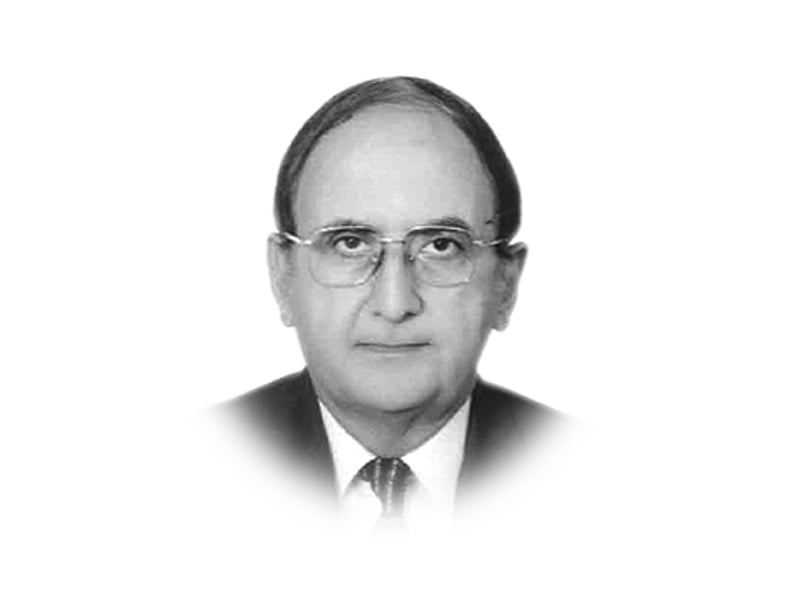
Govt needs to match army’s efforts in ongoing fight against terror: COAS
The civilian federal government was perturbed by the statement issued at the conclusion of the Corps Commanders’ meeting on November 10 that called upon the government to fill the gaps in the implementation of the National Action Plan (NAP). A similar discussion took place at the meeting of the military top brass with the prime minister and his top colleagues a day earlier. However, the public expression of the top commanders’ displeasure at poor governance and a lack of a supportive civilian role for the counter-terrorism operations caused much distress in the PML-N circles. The prime minister faced a dilemma on this issue. If he responded to the statement, it was bound to strain civil-military relations. If he ignored it, many political leaders and the media would have accused him of surrendering increasingly more space to the military. The prime minister opted for the first course of action. His office issued a rejoinder defending the track record of the government and declared that the implementation of the NAP was the joint responsibility of all state institutions. On its part, the statement maintained that the government was adopting effective measures to implement various provisions of the NAP.
There was uproar in the two houses of parliament. The PML-N and other parties that shared or exercised powers in Sindh and Balochistan supported the government at the federal level. Some members, known for their negative disposition towards the military, were extremely critical of the statement. Others expressed their concern at the situation in a cautious tone. PPP leaders professed support for the government. The PTI was the only party left in the opposition that underlined the need to improve governance and properly implement the NAP.
Army, FC soldiers’ indomitable courage bedrock of Zarb-e-Azb: Gen Raheel
Pakistan’s experience suggests that the military invariably enjoys precedence in civil-military relations because the country developed as a security state from the early years of independence due to external security threats and the fear of internal collapse. American military and economic assistance helped modernise the military, thereby accentuating Pakistan’s institutional imbalance. The long years of direct and indirect military rule, the weak and divided political leadership in the post-military withdrawal period and the Afghanistan war boosted the institution’s image. The military contributes the most decisive input in the making of foreign policy and security choices. It enjoys a near-monopoly on Pakistan’s nuclear progamme.
When Nawaz Sharif assumed power in June 2013, he appeared to command the political system. However, he gradually lost ground to the military in 2014-15. The balance of civil-military relations began to shift away from Nawaz Sharif with the PTI dharna. The PML-N’s top leadership made up its mind to work closely with the military to protect itself from the opposition onslaught.
The indecisiveness of the Sharif government in countering religious extremism and terrorism adversely affected its capacity to pursue these issues with firmness and clarity. The insistence on a dialogue with the TTP when the group did not give any indication of wanting direct contact with the government showed poor handling of the dialogue option. Surrounded by TTP sympathisers, Nawaz Sharif delayed the military action, giving enough time to the group’s leadership to relocate. It was the military that unilaterally decided to launch the security operation in North Waziristan on June 15, 2014. The Sharif government was left with no option but to endorse the decision.
A critical disjunction
The leadership role in coping with the terrorism challenge passed on to the military in the aftermath of the terrorist attack on the Army Public School, Peshawar, the setting up of the Apex Committees and the establishment of military courts. The first signs of strains in civil-military relations emerged in Karachi, when the absence of requisite political support led the military to unilaterally step up the security operation there. The PPP-led provincial government and the MQM expressed strong reservations on the stepping up of the operation. What perturbed the political elite was the policy of going after the providers of political support and funding to terrorist and extremist groups. There was criticism from the PPP and other opposition parties as to why the issues pertaining to bad governance, corruption and support of terrorism were being raised in Karachi only? Was Punjab immune from these ills?
The military’s recent frustrations are mainly due to the non-availability of the required civilian support in Sindh, Punjab and at the federal level for a consistent implementation of the NAP and the control of corruption in the government, funding of terrorist groups and madrassa reforms. The civilian leadership is not likely to adopt a forthright approach on these issues as its support base overlaps with those engaged in these activities. Civil-military relations will continue to move on an uneven path. The management of this relationship will be a delicate balancing act for all stakeholders.
Pakistan faces acute internal and external security challenges. Neither the civilians nor the military alone can deal with them. They will have to work together, showing restraint towards the peculiar behaviour patterns of each side. However, if the civilian leadership engages in political adventurism or continues to neglect the imperatives of controlling terrorism and extremism, its survival in power will become doubtful. Similarly, if the military ends up assuming all responsibilities, it may find it difficult to manage the increasingly unmanageable politics of the country. A functional civilian order is required for ensuring internal and external security.
Published in The Express Tribune, November 16th, 2015.
Like Opinion & Editorial on Facebook, follow @ETOpEd on Twitter to receive all updates on all our daily pieces.













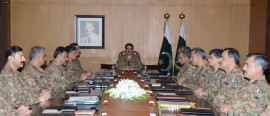
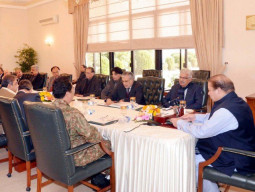

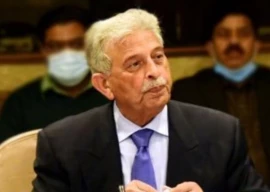



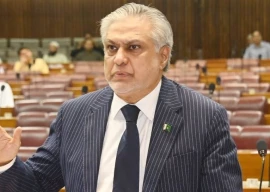








1714024018-0/ModiLara-(1)1714024018-0-270x192.webp)









COMMENTS (2)
Comments are moderated and generally will be posted if they are on-topic and not abusive.
For more information, please see our Comments FAQ